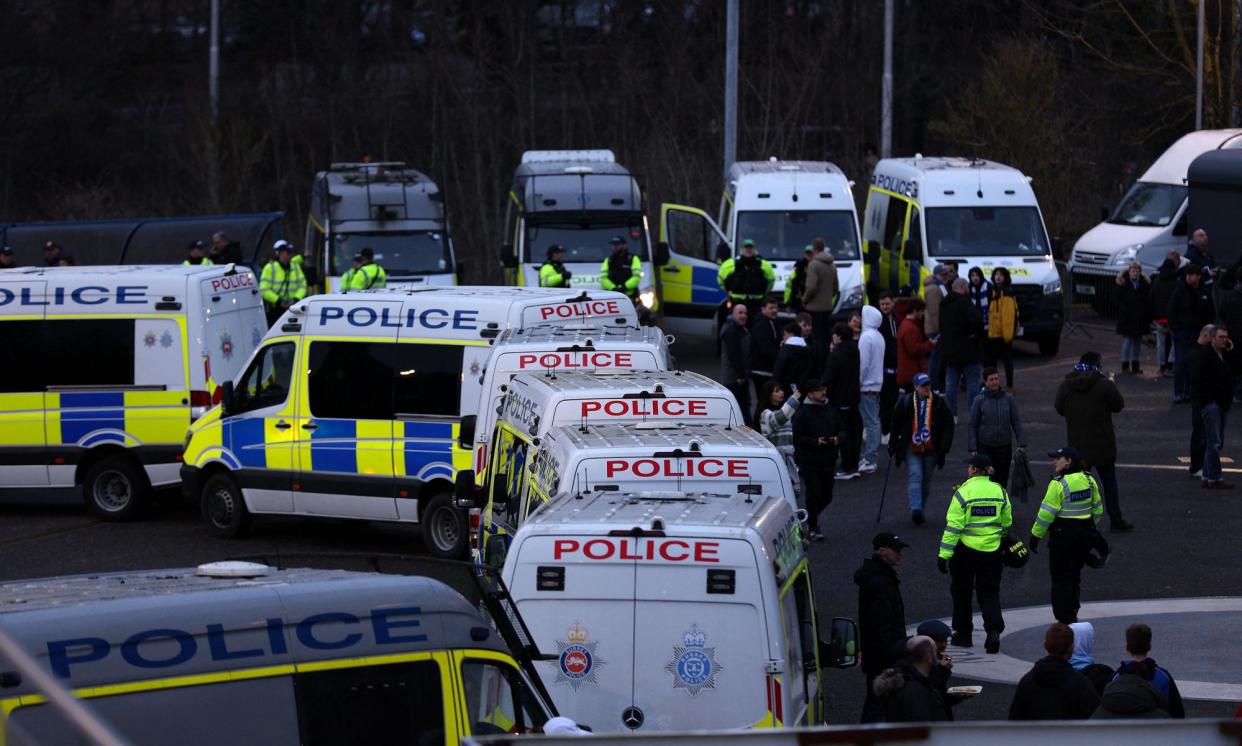Rape investigators diverted to police football matches and festivals, inspection finds

Specialist investigators who are supposed to hunt down rapists are being diverted to police football matches and festivals, with victims waiting up to four years for their alleged attackers to come to trial, a report from the official police inspectorate has found.
In some cases big delays mean victims are dropping out of supporting prosecutions, risking attackers getting away with it.
The report from His Majesty’s Inspectorate of Constabulary, Fire and Rescue Services also found half of rape investigators are not fully qualified, and are still in training while handling complex and sensitive sexual violence cases.
The findings come as police chiefs have vowed to treat an epidemic of rape and sexual violence as seriously as terrorism.
The inspection was into the effect of Operation Soteria, which is supposed to reverse a crash in the conviction rate for rape and sexual violence. It broadly backed the scheme, finding early signs of progress, but found delays, lack of resources and lack of knowledge.
Lead Insp Michelle Skeer said that of the nine forces inspected, delays of two years for victims for their cases to reach trial were “frequent”. She said in two forces they came across much bigger delays of four years. Skeer declined to name the forces.
The report said teams were overworked and, in one case, a victim received no update after reporting an attack in 2021 because investigators were so busy.
The report said rape and serious sexual assault offences (Rasso) investigators often bear large workloads and were being diverted to plug other gaps in policing: “In half the forces we inspected, Rasso personnel are routinely diverted to supporting events such as football matches and festivals.
“Forces should recognise that this means Rasso investigators end up cancelling appointments with victims or delaying arrests. It only adds to their workload pressure.”
Related: Years of delays to rape trials a ‘significant injustice’, says judge
The report said: “We found that in nearly every force, half of Rasso teams are personnel who aren’t fully qualified and are still training.”
On the delays, the inspectorate said: “Victims often wait at least two years for their cases to be heard. In two forces, they waited as long as four years. Delays and uncertainty make it much more likely that victims will withdraw support for a case.”
At the time of the inspection 19 forces had adopted Soteria. By the end of this year all forces in England and Wales are scheduled to do so.
Skeer said: “For too long, victims of rape and serious sexual offences have been failed by the criminal justice system.
“Early signs of positive progress are being seen. For instance, new training is helping investigators understand victims and their response to trauma. Under Soteria, investigators also assess the wider context of a crime, including intelligence about the Rasso suspect and digital evidence.
“But improvements are required to ensure Operation Soteria is implemented effectively. For example, some leaders didn’t fully understand Soteria or the benefits it can offer. We found resource gaps in digital forensics, analysis, victim support and investigation teams.”
The report demands improvements and also warns that “few forces actively target repeat Rasso suspects” – responsible for one in four offences, and forces should improve their knowledge of when and how to trigger protection orders.
The inspectorate said police should be tougher on allegations of suspects breaching bail conditions and said: “A suspect went to a victim’s house. They were caught on a video doorbell camera. But even though this breached their bail conditions, the police decided it wasn’t serious enough to arrest them.”
It warns such a case could embolden a suspect and scare off the victim from supporting a prosecution.
The report demanded a detective recruitment crisis be fixed and said: “One senior manager in a rape investigation team said 45% of their detective posts were vacant.” They told us they had “no idea how to fill them”.
Harriet Wistrich, from the Centre for Women’s Justice, said victims were suffering delays and having to fight for the most simple things: “There continue to be huge delays in rape cases progressing through the system – there are a range of reasons for this, many resource related, not just with police but criminal justice as a whole – however, survivors report that they can wait for months for even an update in the investigation and have to chase constantly.”
Charge rates for rape are now 2.6% and police promises to improve follow a series of scandals in which officers have attacked women and forces have sometimes missed clues as to the danger they posed.


